memoirs- records of experiances
biographies/ autobiographies
biographies/ autobiographies
Novels:
The Little Prince
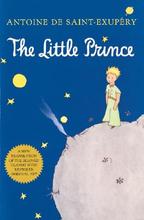
The Little Prince written by Antoine de Saint-Exupery is based on the authors personal memory of a plane crash which he turns into the plot of the book. The Little Prince leaves his planet and remembers the rose that he left on the planet when the Prince sees similar roses which prompts his journey back home. The symbolism of the rose signifies that when you leave behind something important, remembrance of that aspect is evident and cannot be escaped. When we love someone and they leave us
(death/trip/separation) we remember them
and times spent together (love for rose). The pilot (narrator and author)'s memory shows how things used to be before the crash. He wrote the book in a memory of a friend and dedicated it to him, people use dedication to show their love and that the person is still in their thoughts.
Siddharta
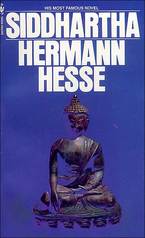
Siddartha embarks on a journey where each step brings him closer to his goal, achieving self-enlightenment. The memory of each obstacle he passes (Samanas, Buddha, the ferryman, prosperity) each help him to become who he is. This book raises the question of "are we defined by our memories" because Siddartha evidently becomes the enlightened being at the end of the book because his memories propel him forward. Another way memory is demonstrated in this book in an entirely new light is the Déjà vu with his son, Siddartha left his father after rejecting his teachings and then Siddartha's son does the same to him. Through this Siddartha learns of the grief he caused his father so long ago. This demonstrates that memories can teach us lessons and help us peer into the past, for better or for worse.
The Old Man and the Sea
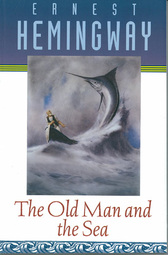
The Old Man and the Sea demonstrates that memories never die. Santiago has a great memory of the past, of baseball and fishing and his youthful spirit and strength. The old man's actions in fighting off the sharks, and his courage are reflected in his strength for his youth and the past. Santiago is caught up on memories for his younger days and is found repeatedly telling Manolin (the young boy who fishes with him) stories of his past with exaggeration. For example,"When I was your age I was before the mast on a square rigged ship that ran to Africa and I have seen lions on the beaches in the evening." "I know. You told me," (1.125-1.126) His memory was focused on places and not people in his life, only baseball players.
Gilgamesh
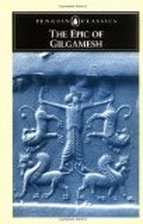
Death is inevitable, it's a part of life, but it is how we cope with the memory of the death that defines us. Some people are better at forgetting and moving on, while others retain those memories and make them a part of their every day life. Gilgamesh, the main character, a selfish king who finds a close companion in Enkidu a wolf man. Gilgamesh loses his best friend very early on in the book and the rest of the book continues to show us the constant battle that he has with the memory of his friend. He wants to bring him back to life which is what we, as humans feel when a close friend or relative passes away. Gilgamesh really demonstrates a grieving process that some people might go about. In the end however, Gilgamesh realizes that coping with the memory of Enkidu will help him rule his kingdom and it will make him a stronger person in all other aspects of life.
The Odyssey- Homer
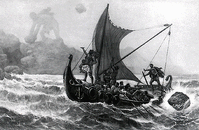
A piece of Epic literature written by Homer who also wrote the Iliad. Odysseus, the Trojan war hero is still not back to his land of Ithaca years after the war ends. His wife is being surrounded and pressured by suitors and he is determined to get home. This epic tells the tale of Odysseus' journey home. On this journey he encounters a lot of different obstacles as well as many gods and goddess' interfering. Previous to the war, Odysseus had a son named Telemachus, who has since grown up but was only a baby when Odysseus left. Odysseus is determined to get home because of the memory of his wife Penelope as well as his son are still prevalent in his mind. He feels the pain of the loss for them, but the memory of them is still engraved in his mind, pushing him forward.
The Five People You Meet in Heaven- Mitch Albom
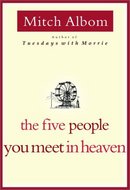
This novel recounts the life and death of a maintenance man, war veteran who works at an amusement park named Eddie. After he died in an accident involving a roller coaster we see Eddie in heaven. In Mitch Albom's interpretation of heaven Eddie finds himself in five different heavens with five people. These five people have apparently significantly affected his life whether he knew it or not. What makes this book relate to memory is that each of these person remembers Eddie because of a time they had with him or the impact they had on his life. One of the people that significantly demonstrate memory is the blue man, this man was driving near Eddie and Eddie ran out into the street, the blue man swerved out of the way and the blue man ended up killing himself. The Blueman demonstrates that events are not random and lives cross paths for different reasons. The blue man, in heaven lives with the memory of not killing the child, but killing himself, which he has to cope with. Another lesson that Eddie learns is when he is propelled back to a war ground during WWII when he fought in the Philippines. He was at a fire and he saw a small shadow of a child and then gets his leg shot at. Both the memory of the child and the injury inflicted to his leg are forever engraved in his mind which demonstrates that traumatic events stick with us. The rest of the people that Eddie meets also pull him back into a previous time in his life where he is forced to relieve his memories.
King Lear- Shakesphere

King Lear is the powerful king of Britain. But as he is getting old he wants to hand over the ruling of the kingdom to his heirs and relax. He is portrayed as wanting the power without having any responsibility. He is also said to have suffered form memory loss and "King Lear disease" aka Dementia or Alzheimer's.
The Night by Elie Wiesel
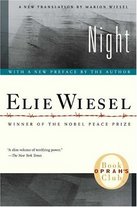
There are hundreds of novels recounting stories of the Holocaust. In this particular novel Elie Wiesel tells about his memories with his father, Shlomo, in the Nazi German concentration camps at Auschwitz and Buchenwald in 1944-1945. This book recants the height of the Holocaust and the Second World War. Elie explains the devastation, the loss of faith, the deaths, and his experiances during this time period. Weisel writes about his loss of faith in God and when faith came back to him. This book also shows the power in the father-son relationship as well as a friend relatonship in this time of hardship and devistation for not only the jewish people, but all different people who were presucted by the Nazi's. All the history stories about events such as the Holocaust, 9-11, assassinations, biographys, and killings all show that history can be preserved and relived through the words of people who experianced and rememebered these events, these memories then become apart of the readers lives and are up for interpretation.
The Giver-Louis Lowry
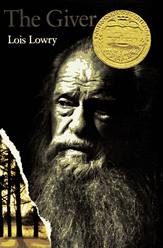
Imagine living in a world where everything is "perfect," a utopian like society. That's how life was like for Jonas. His world was perfect, with everything in control, there is no war, pain, or even fear, he lives with no burdens and neither does anyone else in the community that he lives in. There are no decisions to be made and no choices. Every person is assigned a specific job in the community and no one has a say in what they do or not and he doesn't care because thats all he knows. In turning 12, as a coming of age ritual he receives a job, to receive training from the Giver. The Giver holds the memories of the pain and pleasures of life, and finally Jonas learns the truth about the community. Jonas learns that all the memories of colors, laughter, enjoyment, death, loss, are all kept away from the community to keep the community perfect and away from destruction. The memories he learns are ones that we take for granted and one's that are a major part of our life. This book explains how difficult some memories are to cope with and what life would be like if we didn't have our memory.
Harry Potter- JK Rowling
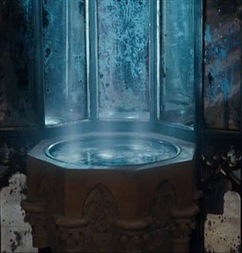
Harry Potter, novels about a boy who finds out that he is a wizard and enters the wizarding world into Hogwarts school of Witchcraft and Wizardry. Here he befriends Ron Weasly, a red headed boy from a poor family who is a very loyal companion and Hermione Granger, the smartest girl at the school. It is also here that he realizes he was the "boy who lived," he was the one person that the Dark Lord, Lord Voldemort, couldn't kill. Harry realizes that it is his duty to help stop lord Voldemort from gaining power. In this mystical world that author, Jk Rowling creates different spells and ways of memory are used:
The Pensive- a place for storage of memories, so a person would be able to look back on their memories any time they want as well as submit whatever memories they want into the pensive.
False memory spell- this spell is used to implant false memories in an individual’s mind. This could be the authors way of demonstrating how not all of our memories are necessarily reliable. Hermione, who was leaving to help Harry on an important task, used this spell on her parents who are not wizards so they won't know anything about her if anyone was hunting her down.
Obliviate- Created by Gildoroy Lockart aka the memory charm which wipes out a memory rather then just alter it.
The Pensive- a place for storage of memories, so a person would be able to look back on their memories any time they want as well as submit whatever memories they want into the pensive.
False memory spell- this spell is used to implant false memories in an individual’s mind. This could be the authors way of demonstrating how not all of our memories are necessarily reliable. Hermione, who was leaving to help Harry on an important task, used this spell on her parents who are not wizards so they won't know anything about her if anyone was hunting her down.
Obliviate- Created by Gildoroy Lockart aka the memory charm which wipes out a memory rather then just alter it.
Searching for David's Heart by. Cherie Bennett
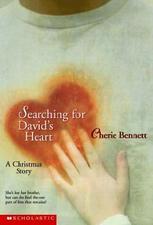
Darcy and David Deeton have always been very close siblings until David begins ignoring Darcy for his girlfriend. One day Darcy gets upset with David and runs away from David into the street, David follows her trying to stop her but he ends up getting hit by a car and being killed. David's heart gets donated to a boy named Winston Pawling in Miami, Florida. The entire book is Darcy's search for her brothers heart inside that boy. We learn a lot about Darcy throughout the entire novel. In addition, Darcy learns that she can keep the memory of David alive through Winston because he has a part of David inside him.
Atonement by Ian McEwan
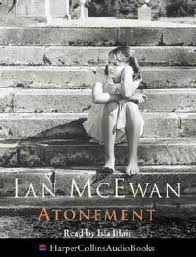
Atonement, a novel by Ian McEwan features a young girl Briony who witnesses her sister’s infatuation for her housekeeper’s son, Robbie. Briony believes that he is raping her sister when she discovers an explicit letter revealing dirty words. Briony, is convicted that Robbie is a psychopath out to get her sister. Later in the book Briony discovers her friend Lola, lying on the ground crying because she was raped. Briony out of fear says that it is Robbie. Robbie goes to jail and we learn that he is falsely convicted.
Briony gets twisted in a tale of false memories, as the cause of many psychological conditions is a traumatic event during childhood Briony "loses" her memory. Perhaps if Briony wasn't so conviced Robbie was a maniac she wouldn't have accused him first hand and then learned that her memory of the man raping Lola was wrong. As Briony gets older she starts to become less sure of her memory, the one that changed Robbie's life.
Poems
Forgetfullness- Billy Collins
The idea that we gradually lose from our hearts the lines of our favorite love-poems, as well as other precious contents as we grow old and forgetful is simply heart breaking. This poem reminds us of a lot of mental disorders and not just growing old and what comes with it. This poem is talking about man’s vulnerability. We cannot control what we forget; it’s an encoding failure. Collins uses everyday things such as books, rivers, and planets to show us how our memory deteriorates or loses due to disease or even old age. “Who have even forgotten how to swim or how to ride a bicycle,” which are two things that we are told “we never forget” but even that leaves us at some point.
I Never Saw Another Butterfly - Pavel Friedman
The last, the very last,
So richly, brightly, dazzlingly yellow.
Perhaps if the sun's tears would sing against a white stone. . . .
Such, such a yellow Is carried lightly way up high.
It went away I'm sure because it wished to kiss the world good-bye.
For seven weeks I've lived in here,
Penned up inside this ghetto.
But I have found what I love here.
The dandelions call to me
And the white chestnut branches in the court.
Only I never saw another butterfly.
That butterfly was the last one.
Butterflies don't live in here,
In the ghetto.
During the Holocaust, beautiful things were a rarity. This poem symbolizes how something as simple as a butterfly was rare during this horrible time in European history. This poem also demonstrates sadness and loss and is up for interpretation as to whether it only symbolizes loss of nature or all things that were taken away from the people persecuted during the holocaust.
So richly, brightly, dazzlingly yellow.
Perhaps if the sun's tears would sing against a white stone. . . .
Such, such a yellow Is carried lightly way up high.
It went away I'm sure because it wished to kiss the world good-bye.
For seven weeks I've lived in here,
Penned up inside this ghetto.
But I have found what I love here.
The dandelions call to me
And the white chestnut branches in the court.
Only I never saw another butterfly.
That butterfly was the last one.
Butterflies don't live in here,
In the ghetto.
During the Holocaust, beautiful things were a rarity. This poem symbolizes how something as simple as a butterfly was rare during this horrible time in European history. This poem also demonstrates sadness and loss and is up for interpretation as to whether it only symbolizes loss of nature or all things that were taken away from the people persecuted during the holocaust.
Sources:
http://www.cvs.k12.mi.us/iroquoismediacenter/Book%20Reviews/2007-08%20Reviews/Searching%20for%20David's%20Heart.pdf
http://www.shmoop.com/king-lear/king-lear-character.html
http://images.broadwayworld.com/upload/39244/King-Lear.jpghttp://www.mce.k12tn.net/reading17/giver.htm
Pictures:http://kaeding.name/wp-content/uploads/2010/01/dumbledore_pensieve.jpghttp://humx.org/wp-content/uploads/2008/12/the-odyssey-of-homer.gif
http://images.wikia.com/harrypotter/images/e/e7/Pensieve.jpghttp://3.bp.blogspot.com/_7dO5WYy1w3U/TTjHGo3aueI/AAAAAAAAASM/cQB2N9j1PO4/s1600/Night.jpg
http://images4.wikia.nocookie.net/__cb20070212203918/harrypotter/images/e/e6/Gilderoy_Lockhart.JPG
http://4.bp.blogspot.com/_Hwy_LV3-X9g/TFA_dO6pvZI/AAAAAAAAAYg/welW9euPvI0/s1600/Five+people+Cover.jpg
http://www.cvs.k12.mi.us/iroquoismediacenter/Book%20Reviews/2007-08%20Reviews/Searching%20for%20David's%20Heart.pdf
http://www.shmoop.com/king-lear/king-lear-character.html
http://images.broadwayworld.com/upload/39244/King-Lear.jpghttp://www.mce.k12tn.net/reading17/giver.htm
Pictures:http://kaeding.name/wp-content/uploads/2010/01/dumbledore_pensieve.jpghttp://humx.org/wp-content/uploads/2008/12/the-odyssey-of-homer.gif
http://images.wikia.com/harrypotter/images/e/e7/Pensieve.jpghttp://3.bp.blogspot.com/_7dO5WYy1w3U/TTjHGo3aueI/AAAAAAAAASM/cQB2N9j1PO4/s1600/Night.jpg
http://images4.wikia.nocookie.net/__cb20070212203918/harrypotter/images/e/e6/Gilderoy_Lockhart.JPG
http://4.bp.blogspot.com/_Hwy_LV3-X9g/TFA_dO6pvZI/AAAAAAAAAYg/welW9euPvI0/s1600/Five+people+Cover.jpg
